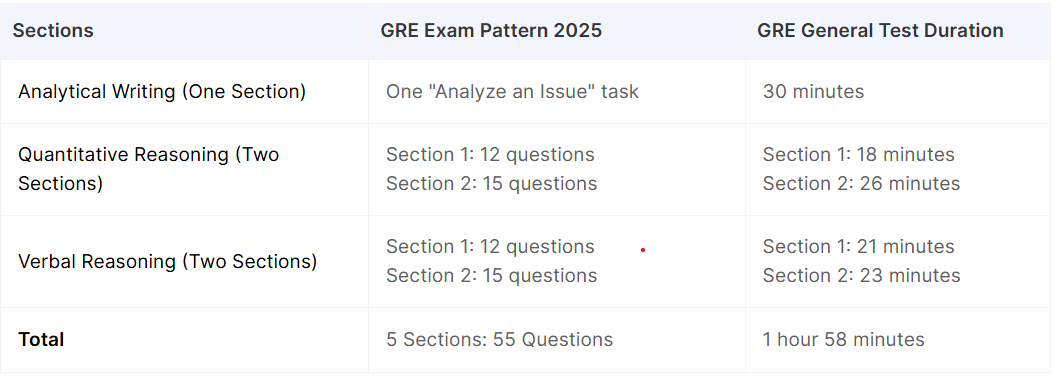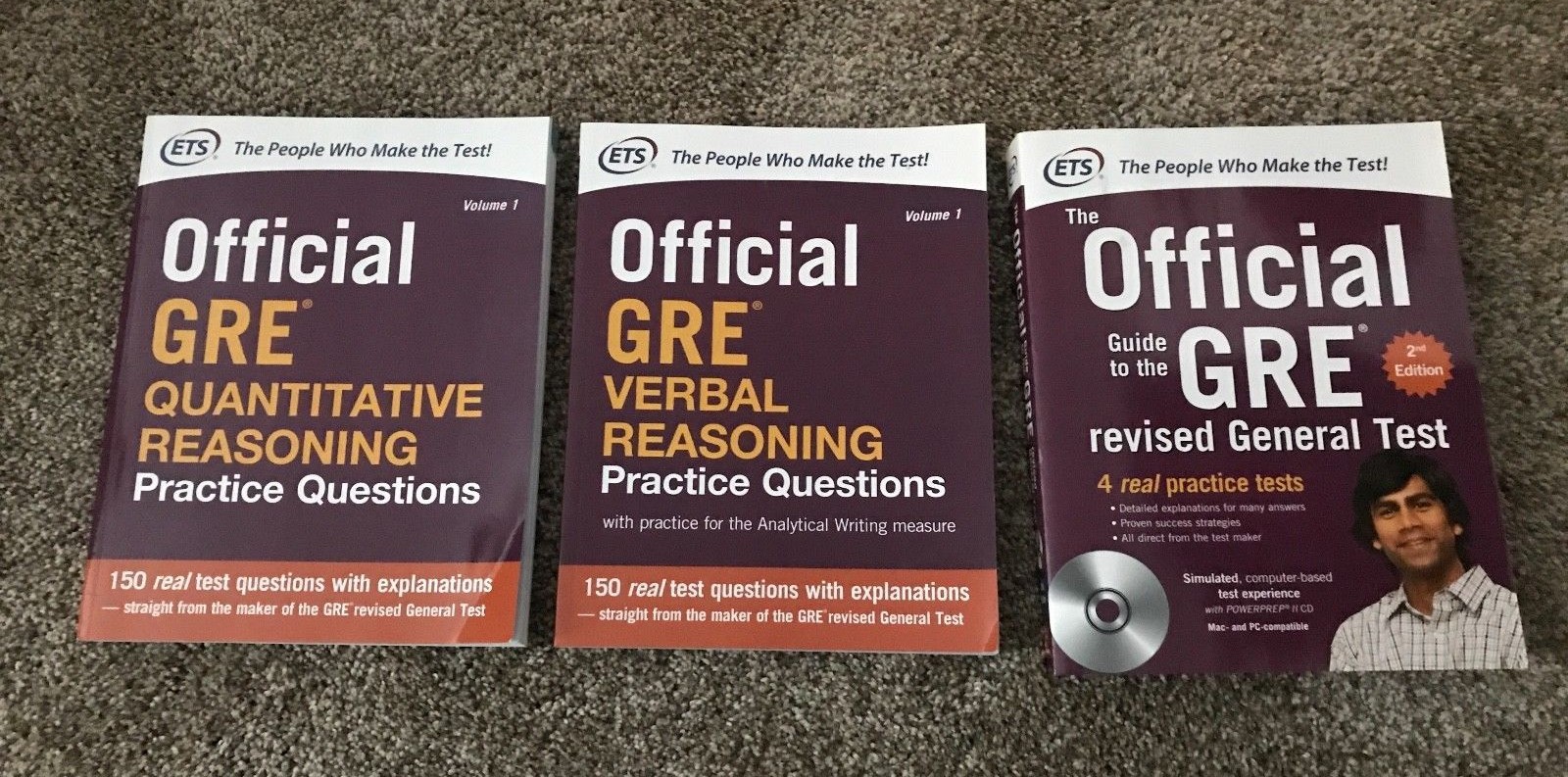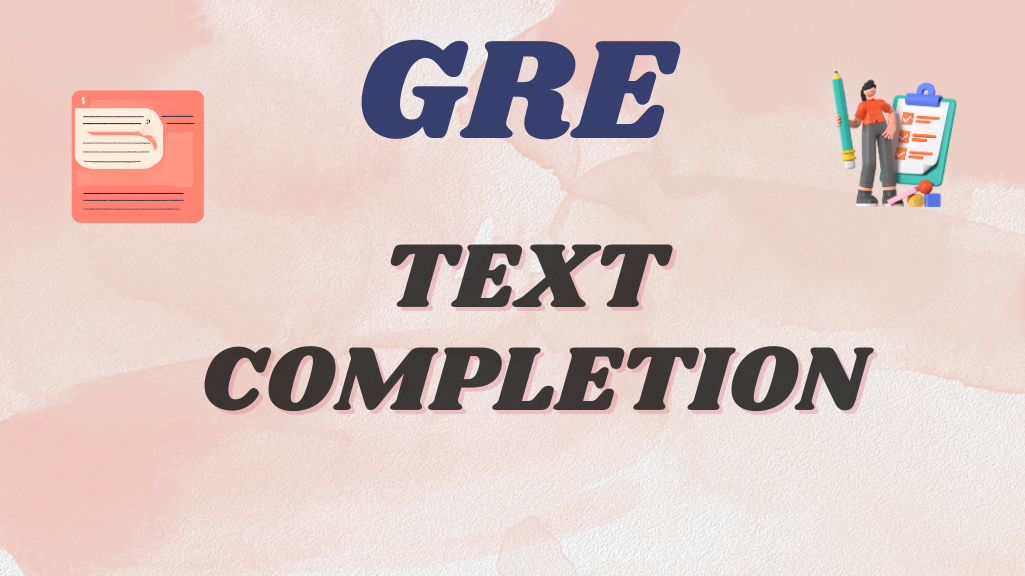In this article, we’ll dive into everything you need to know about GRE Text Completion—how the questions work, key strategies, common mistakes to avoid, and many more.
Understanding GRE Text Completion
The GRE Verbal section tests both your vocabulary and reading skills and Text Completion is one of the trickiest question types. These questions ask you to fill in missing words in a passage by picking the best fit from multiple choices. To ace them, you need a solid vocabulary, the ability to understand context and a logical approach to breaking down complex sentences.
For convenience:

Question Format
GRE Text Completion questions come in three varieties:
1. Single-blank questions – The simplest format, requiring you to pick one word to complete the sentence.
2. Double-blank questions – More complex, requiring two separate choices that together complete the meaning.
3. Triple-blank questions – The most difficult type, requiring careful analysis to ensure all three words fit logically.
One key feature of Text Completion is that there is no partial credit—if you miss even one blank in a multi-blank question, your answer is marked as incorrect.
Why Text Completion Is Challenging
- The sentence structures can be complex, often containing multiple clauses, unusual phrasing, or tricky wordplay.
- The correct answer choices may contain rare or unfamiliar vocabulary, making it hard to determine the right option.
- The GRE deliberately includes tempting trap answers, which seem correct at first glance but distort the sentence’s meaning.
Strategy to Solve Text Completion Questions
1. Read the Entire Sentence First
Many students make the mistake of jumping straight to the blanks. Instead, begin by reading the sentence carefully to grasp the overall meaning. Identify the subject, tone, and direction of the sentence.
2. Identify Contextual Clues
Context clues help determine whether the missing word(s) should have a positive or negative meaning. Look for:
- Contrast words: However, although, despite, whereas (indicate a shift in meaning).
- Cause-effect words: Because, therefore, thus, as a result (indicate logical connections).
- Definition words: That is, in other words, namely (offer clarifications or synonyms).
For example:
"Despite her reputation for ____, she was always the first to volunteer for difficult projects."
- The word "despite" signals contrast.
- The missing word must be negative, since it contrasts with "volunteering for difficult projects."
- Possible answer: laziness, apathy, reluctance
3. Predict the Missing Word(s) Before Looking at Answer Choices
By predicting the missing word(s), you prevent yourself from being misled by tricky options. Try to replace the blank with a synonym that fits the sentence’s meaning.
For instance:
"The scientist was so ____ in her research that she barely noticed the passage of time."
- Prediction: absorbed, engrossed, immersed
- Now check the answer choices and match the closest synonym.
4. Use Process of Elimination (POE)
If you're unsure about an answer choice, eliminate options that:
- Do not fit the sentence's meaning
- Have the wrong connotation (positive when negative is needed, or vice versa)
- Are too extreme or unrelated
Example:
"The politician’s speech was so ____ that even his staunchest supporters found it difficult to follow."
(A) engaging
(B) convoluted
(C) eloquent
(D) inspiring
(E) brief
- Since "difficult to follow" is a negative clue, we need a negative word.
- "Convoluted" (complex and hard to understand) is the best choice.
5. Consider All Blanks Together (for Multi-blank Questions)
When dealing with multiple blanks, think holistically. Words should be logically connected and fit the sentence's tone.
Example:
"While the governor’s actions seemed ____, they were in fact carefully planned to create a sense of ____ among voters."
(A) impulsive … uncertainty
(B) strategic … stability
(C) reckless … confidence
(D) arbitrary … unity
- The phrase “in fact” suggests contrast.
- If actions "seemed" one way but were actually different, the first blank should be negative, and the second blank should match a logical outcome.
- "Impulsive" (seemingly rash) and "uncertainty" (the result) work best.
Tips for GRE Text Completion
1. Build Your GRE Vocabulary
Since Text Completion questions frequently test sophisticated vocabulary, expanding your word bank is essential. The GRE tends to use high-frequency words, so focusing on those will give you the most benefit.
How to Improve Your Vocabulary Effectively
- Use Word Lists – Study well-known GRE word lists, such as the Manhattan 500 Essential Words, the Barron’s 1100 Words, or the Magoosh GRE Vocabulary List.
- Read High-Level Texts – Newspapers like The New York Times, The Economist, and The Atlantic frequently use GRE-level vocabulary in context.

- Use Flashcards – Apps like Anki, Quizlet, and Magoosh allow for active recall and spaced repetition, which help with long-term retention.
- Make It Practical – Try incorporating GRE words into your daily conversations, writing, or journaling to reinforce their meanings.
Essential GRE Words by Category
- Positive Words (Indicating Intelligence, Skill, or Precision)
- Eloquent – Fluent and persuasive in speech or writing.
- Benevolent – Kind and generous.
- Meticulous – Extremely careful and precise.
- Pragmatic – Practical and focused on real-world results.
- Negative Words (Indicating Confusion, Instability, or Negativity)
- Obfuscate – To deliberately make something unclear or difficult to understand.
- Equivocal – Open to multiple interpretations, ambiguous.
- Capricious – Prone to sudden and unpredictable changes.
- Impetuous – Acting quickly without thought or care.
- Contrast Words (Indicating a Shift in Meaning)
- However – Signals contrast or opposition.
- Notwithstanding – Despite something; in contrast to.
- Albeit – Even though; although.
- Paradoxically – Contrary to expectations, yet still true.
2. Use Word Roots and Etymology
Breaking down words into their roots, prefixes, and suffixes can help you guess the meaning of unfamiliar words. The GRE often includes words that are difficult but have recognizable components.
Common Word Roots for GRE Vocabulary
- Bene- (good, well)
- Benevolent – Kind, well-meaning.
- Beneficent – Generous, charitable.
- Mal- (bad, evil)
- Malcontent – A person who is dissatisfied or rebellious.
- Malevolent – Having ill will or bad intentions.
- Voc- (speak, voice)
- Advocate – To support or argue for something.
- Equivocate – To speak ambiguously to avoid commitment.
- Luc-/Lum- (light, clarity)
- Lucid – Clear, easy to understand.
- Illuminate – To light up or clarify.
- Anthro- (human, people)
- Anthropology – The study of human cultures and societies.
- Misanthrope – A person who dislikes humanity.
How to Use Word Roots Effectively
- When encountering an unfamiliar word, break it down into its root, prefix, and suffix to make an educated guess about its meaning.
- Practice identifying word parts in real GRE questions to train yourself to spot patterns.
- Use mnemonic devices to connect words with their meanings. For example, "malevolent" (bad intentions) is easy to remember because "mal" means "bad."

3. Practice Under Timed Conditions
The GRE Verbal section is timed, and many students struggle to complete all the questions within the allotted time. Developing speed without sacrificing accuracy is crucial.
How to Improve Your Speed and Accuracy
- Use Official ETS GRE Questions – The best practice comes from real GRE questions, as they reflect the actual difficulty and phrasing of the exam.
- Set a Time Limit for Practice –
- For single-blank questions, aim to answer in 30 seconds or less.
- For double- and triple-blank questions, try to complete them in 45-60 seconds.
- Don’t Overthink Every Word – If you're stuck, eliminate the most obviously wrong answers and make an educated guess rather than wasting time.
- Use the Passage Structure to Your Advantage – Instead of analyzing each word choice in isolation, focus on the overall sentence meaning and look for logical flow.
- Simulate Real Test Conditions – Take full-length GRE practice tests with strict timing to build endurance and familiarity with the pacing of the exam.
Recommended Practice Resources
- ETS Official GRE Guide – The best source for real GRE questions.
- Manhattan 5lb Book of GRE Practice Problems – Great for extra Text Completion practice.
- Magoosh & Kaplan GRE Prep – Useful for online drills and vocabulary-building.
Practice
Question 1

Solution:

Question 2

Solution:

Question 3

Solution:

Question 4

Solution:

Question 5

Solution:

Question 6

Solution:

Question 7

Solution:

Question 8

Solution:

Question 9

Solution:

Question 10

Solution:

Question 11

Solution:

Question 12

Solution:

Question 13

Solution:

Question 14

Solution:

Question 15

Solution:

Question 16

Solution:

Question 17

Solution:

Question 18

Solution:

Question 19

Solution:

Question 20

Solution:

